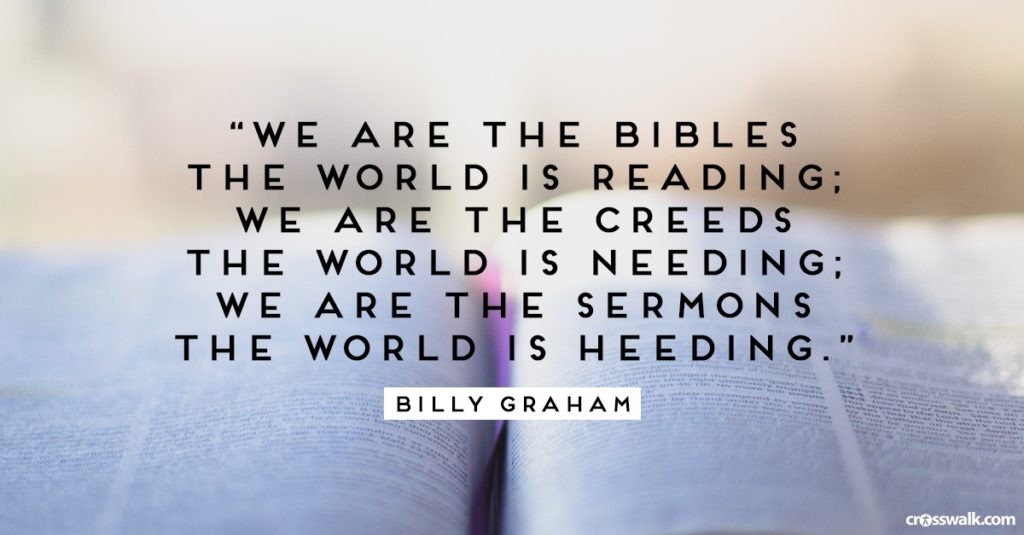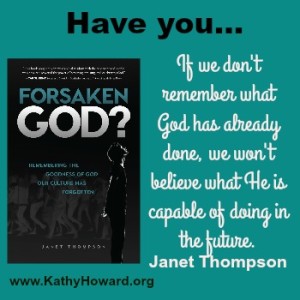
Billy Graham, one of the greatest evangelical pastors, never forgot his mission to preach the gospel!
I was praying about what to write as a follow up to last week’s blog post, Are Today’s Churches Discouraging Reading of the Bible? Did you notice it didn’t reach you until Tuesday, instead of Monday? Neither I nor my amazing web designer could find a logical reason. We both agreed the evil one didn’t want it to go out because I was encouraging Christians to read their Bibles and take them to church! If you haven’t read it, I hope you will now.
“How can a young person stay on the path of purity?
By living according to your word.” Psalm 119:9
This week’s blog is on another controversial topic, although it shouldn’t be controversial. The Christian community should all agree with The National Associate of Evangelicals statement below . . . but sadly they don’t.
[Tweet “Evangelicals take the Bible seriously and believe in Jesus Christ as Savior and Lord.”]
“Evangelicals take the Bible seriously and believe in Jesus Christ as Savior and Lord. The term “evangelical” comes from the Greek word euangelion, meaning “the good news” or the “gospel.” Thus, the evangelical faith focuses on the “good news” of salvation brought to sinners by Jesus Christ.
[Tweet “Evangelicals are a vibrant and diverse group, including believers found in many churches,”]
“Evangelicals are a vibrant and diverse group, including believers found in many churches, denominations and nations [I would add, and different races]. Our community brings together Reformed, Holiness, Anabaptist, Pentecostal, Charismatic and other traditions. Our core theological convictions provide unity in the midst of our diversity. The NAE Statement of Faith offers a standard for these evangelical convictions.
“Historian David Bebbington also provides a helpful summary of evangelical distinctives, identifying four primary characteristics of evangelicalism:
- Conversionism: the belief that lives need to be transformed through a “born-again” experience and a life long process of following Jesus
- Activism: the expression and demonstration of the gospel in missionary and social reform efforts
- Biblicism: a high regard for and obedience to the Bible as the ultimate authority
- Crucicentrism: a stress on the sacrifice of Jesus Christ on the cross as making possible the redemption of humanity
[Tweet “Theological convictions define evangelicals — not political, social or cultural trends.”]
“These distinctives and theological convictions define us — not political, social or cultural trends. In fact, many evangelicals rarely use the term “evangelical” to describe themselves, focusing simply on the core convictions of the triune God, the Bible, faith, Jesus, salvation, evangelism and discipleship.”—What Is An Evangelical, National Associate of Evangelicals. (Emphasis added)
I want to focus on two statements from the above quote:
“Our core theological convictions provide unity in the midst of our diversity.”
Recently, I read comments by a well-known popular Christian speaker/author. I had to re-read to make sure it wasn’t a liberal media post. She used terms like racism, misogyny, bigotry, white evangelicals and leaders, and attributed these issues to the last eighteen months, apparently referring to President Trump’s presidency.
I was offended by the use of liberal accusations, but especially the term “white evangelicals.” These are things progressive liberals are falsely accusing conservatives of promoting, and here was a “white evangelical Christian” with a large platform throwing barbs at fellow believers. How much more divisive can you be? Promoting disunity, not unity, in the Christian community.
Reading the above NAE definition of evangelicals, it never refers to race or skin color, just the opposite. We’ve heard “white” thrown around lately, almost as a slur. Liberals are finding offense with anything “whites” do, including being a white male! Reverse racism. The hypocrisy is that it’s usually said by white Caucasians!
“These distinctives and theological convictions define us — not political, social, or cultural trends.”
[Tweet “The core and single purpose of evangelism is sharing the gospel of Jesus Christ.”]
The core and single purpose of evangelism is sharing the gospel of Jesus Christ. Without Christ, social justice is meaningless—a political talking point.
[Tweet “Without Christ, social justice is meaningless—a political talking point.”]
The progressive view adopted by many prominent Christians today has been labeled by the culture as the “Social Justice Movement.” When evangelicals, regardless of skin color, forget that their ministry and mission is sharing the gospel with a lost world, they’ve lost their way.
[Tweet “When evangelicals forget their ministry and mission is sharing the gospel with a lost world, they’ve lost their way.”]
Bryce Young wrote in his article, Only Christians Understand True Social Justice
Social justice is not the gospel. Social justice is not even the main aim of the gospel — it’s not why Christ died and rose again. But at the same time, true social justice is impossible for any but those who have believed the gospel message.
Those who have been justified by faith should be the most passionate about God’s justice because we can ask for it with our eyes wide open. Only the justified can ask for God’s justice to fall on the abortion industry, and racial inequality, and domestic abusers, and those who grow rich through deceit — only the justified can ask for God to show justice “out there” — without the hypocrisy of hoping that he won’t see my impatience, my lust, my hidden prejudice, my love of comfort. “[These] he set aside, nailing [them] to the cross” (Colossians 2:14).
[Tweet “The Cross represents “social justice,” not the kind batted around today as a “movement.””]
The Cross represents God’s social justice against sin, not the “social justice” batted around today as a “movement.” Sinners hung on either side of Jesus who didn’t care about their nationality, race, skin color, or gender. The distinguishing factor of who would be with Him in Paradise that night was whether they believed He was the Lord and Savior Jesus Christ. One spit at Him and the other confessed his sins, repented, and believed! That’s all it took for the believing criminal’s sins to be forgiven and receive eternal life. Gospel justice!
“Truly, truly, I say to you, whoever hears my word and believes him who sent me has eternal life. He does not come into judgment, but has passed from death to life.” John 5:24 ESV
Women stood at the bottom of the cross. Not demanding their “rights” or social justice, but only to worship and grieve Jesus. The first recorded woman evangelist was the Samaritan woman at the well who ran and told everyone about Jesus and, “Many of the Samaritans from that town believed in him because of the woman’s testimony, ‘He told me everything I ever did.’” John 4:39
That’s what Jesus wants women, and all Christians, to do: share the gospel, while there is still time. NOT taking sides on man’s definition of political “social justice.” The “right” Christian women should be concerned about is the right to share the gospel!
[Tweet “Jesus is the definition of justice for all people!”]
Jesus is the definition of justice for all people!
Today the hot topic is whether or not the Russians interfered with the presidential election. It’s clear that their only purpose was to create division in America, and they succeeded.
Satan wants to do the same with Christians today! Create division among evangelicals, who take their focus off spreading the Good News and join the cultural/political “social justice movement” criticizing conservative evangelicals.
Our one mission and focus should be sharing Jesus with a lost world and supporting those in government and lawmakers who don’t hinder that cause, but support our right to do so freely.
And this gospel of the kingdom will be preached in the whole world as a testimony to all nations, and then the end will come. Matthew 24:14
Then Jesus came to them and said, “All authority in heaven and on earth has been given to me. 19 Therefore go and make disciples of all nations, baptizing them in the name of the Father and of the Son and of the Holy Spirit, 20 and teaching them to obey everything I have commanded you. And surely I am with you always, to the very end of the age.” Matthew 28:18-20
He [Jesus] said to them, “God into all the world and preach the good news to all creation. Whoever believes and is baptized will be saved, but whoever does not believe will be condemned.” Mark 16:15-16
“A majority my rule in the culture, but in your personal life, there should be only one ruler—and that’s God. It makes no difference if 10,000 people [or 10 million people] tell you what you ought to do. Once you have decided to follow the Lord, it’s best to stand right where you are until you get marching orders from Him.” Dr. Charles Stanley
If you received this post by email, please leave a comment here.























